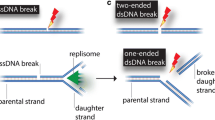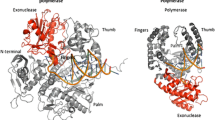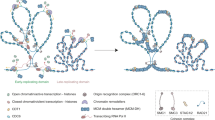Abstract
Proliferating cell nuclear antigen (PCNA) plays an essential role in nucleic acid metabolism as a component of the replication and repair machinery. This toroidal-shaped protein encircles DNA and can slide bi-directionally along the duplex. One of the well-established functions for PCNA is its role as the processivity factor for DNA polymerase δ and ε. PCNA tethers the polymerase catalytic unit to the DNA template for rapid and processive DNA synthesis. In the last several years it has become apparent that PCNA interacts with proteins involved in cell-cycle progression which are not a part of the DNA polymerase apparatus. Some of these interactions have a direct effect on DNA synthesis while the roles of several other interactions are not fully understood. This review summarizes the structural features of PCNA and describes the diverse functions played by the protein in DNA replication and repair as well as its possible role in chromatin assembly and gene transcription. The PCNA interactions with different cellular proteins and the importance of these interactions are also discussed.
Similar content being viewed by others
Author information
Authors and Affiliations
Rights and permissions
About this article
Cite this article
Kelman, Z. PCNA: structure, functions and interactions. Oncogene 14, 629–640 (1997). https://doi.org/10.1038/sj.onc.1200886
Received:
Revised:
Accepted:
Issue Date:
DOI: https://doi.org/10.1038/sj.onc.1200886
- Springer Nature Limited
Keywords
This article is cited by
-
Proteomic analysis of DEN and CCl4-induced hepatocellular carcinoma mouse model
Scientific Reports (2024)
-
Germline-related molecular phenotype in Metazoa: conservation and innovation highlighted by comparative transcriptomics
EvoDevo (2023)
-
Deubiquitinase USP1 enhances CCAAT/enhancer-binding protein beta (C/EBPβ) stability and accelerates adipogenesis and lipid accumulation
Cell Death & Disease (2023)
-
A temporal single cell transcriptome atlas of zebrafish anterior segment development
Scientific Reports (2023)
-
Detection of markers for proliferation, stem cell, and EMT in the gills of Pacific abalone Haliotis discus hannai
Fisheries Science (2023)




